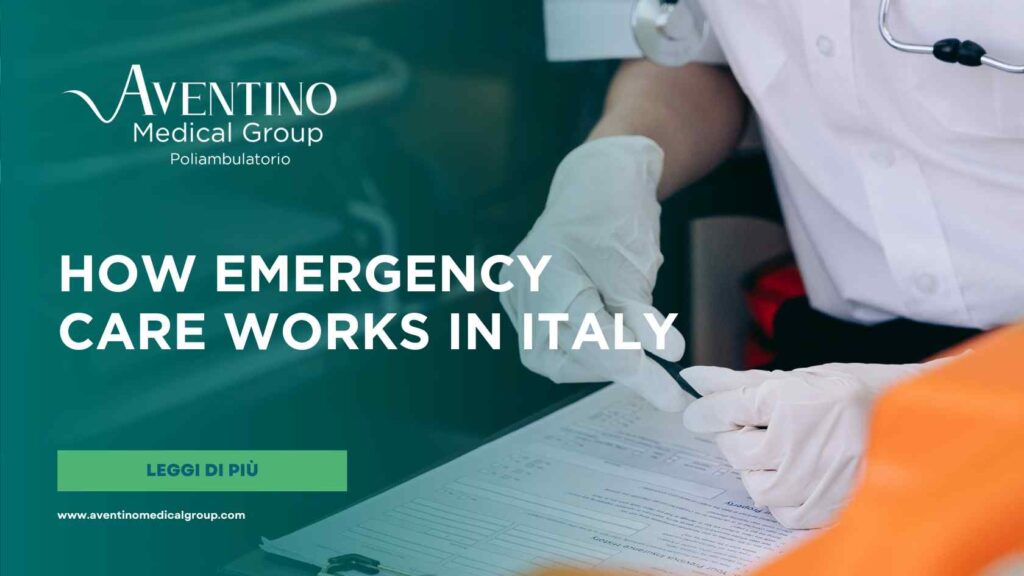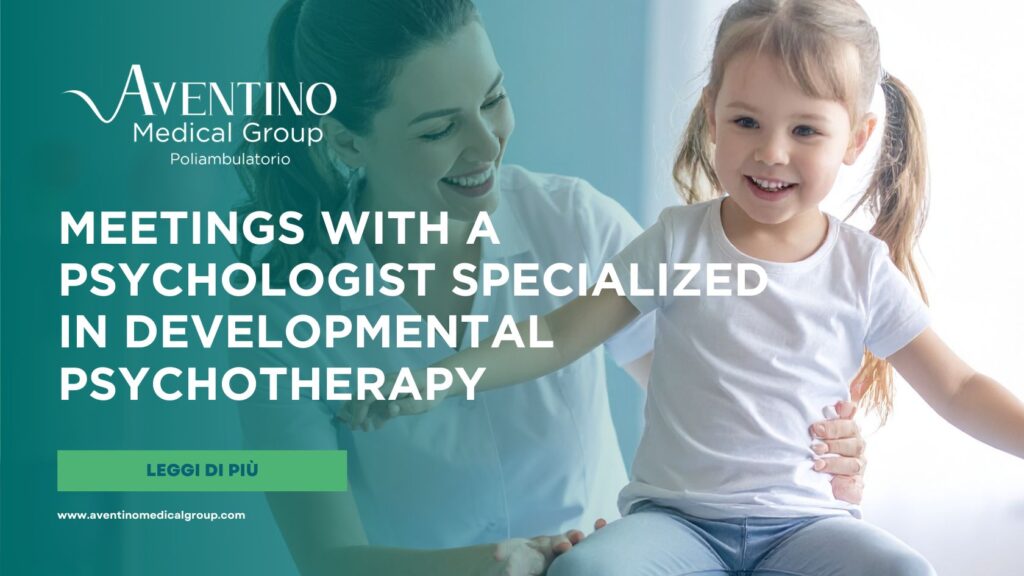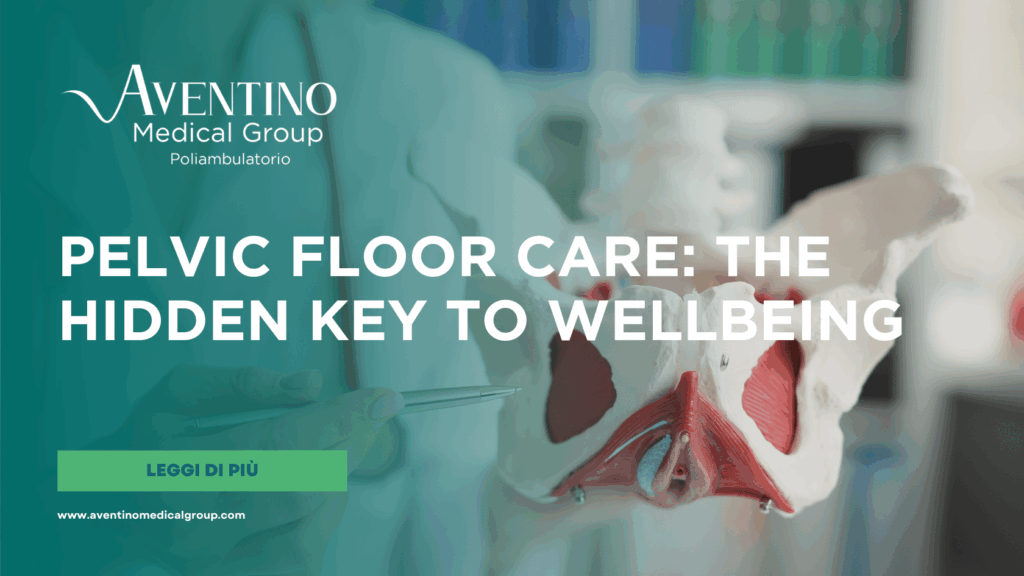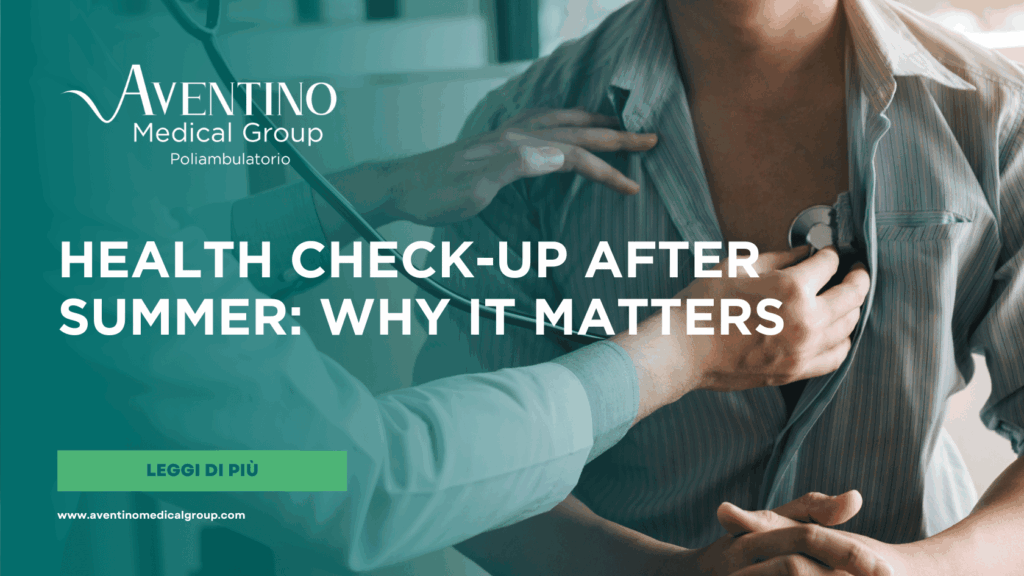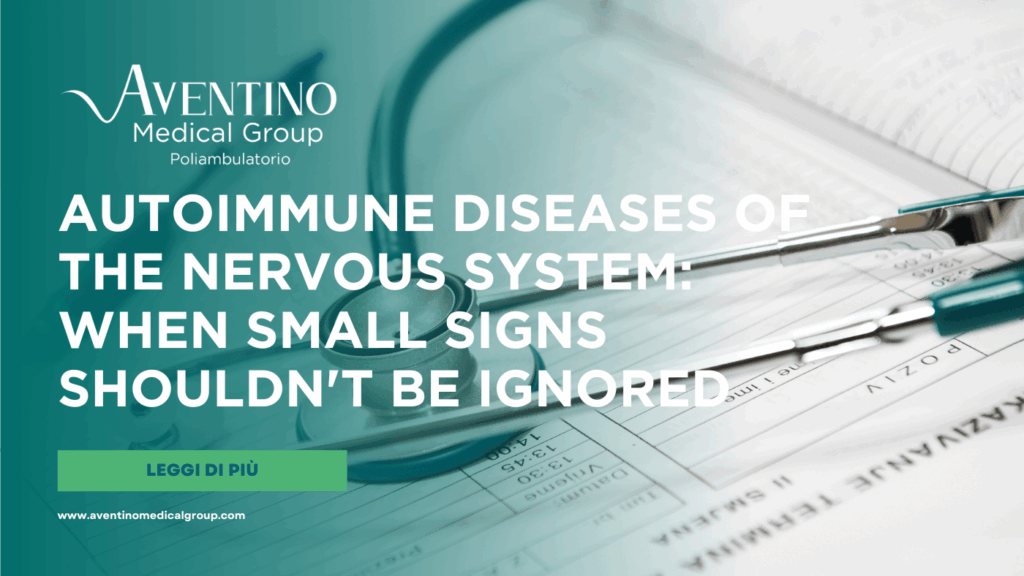How Emergency Care Works in Italy
By Dr. Gabriella Nataloni and Dr. Alessandro Cristaudo, internal medicine physicians at Aventino Medical Group, Rome. Practical guide for people living in or staying in Rome In Italy, medical emergencies are managed mainly by hospital Emergency Departments (Pronto Soccorso – PS) and the territorial emergency system (118 / 112).Access to care does not follow the order of arrival, but the severity of the condition. Understanding when to go to the Emergency Department, which numbers to call and what to expect is essential if you live in Rome or are here temporarily. When and how to access the Emergency Department You can reach the Emergency Department (PS) in four ways: When the Emergency Department is appropriate It is indicated for problems that cannot wait, such as: For minor issues (colds, mild pain, prescription renewals, medical certificates, routine check-ups), it is better to contact: Triage: who is seen first When you arrive at the ED, a triage nurse quickly assesses your condition (blood pressure, oxygen saturation, symptoms, brief history) and assigns a priority code. In the Lazio region a 5-code system is used: Code Colour Meaning Examples 1 🔴 Red Absolute emergency – immediate cardiac arrest, shock, coma 2 🟠 Orange High urgency – very rapid chest pain, major trauma 3 🔵 Light blue Deferrable urgency – can wait high fever, moderate pain 4 🟢 Green Minor urgency mild symptoms, localised pain 👉 This system is not a matter of politeness, but a way to ensure that people whose lives are at risk are treated immediately, even if they arrived later than others. What happens once you arrive The typical Emergency Department pathway: 1. Registration (Accettazione) Your personal details are recorded. You will be asked for:– ID card or passport– Italian health card (if available)– any insurance documents 2. Triage Brief symptom assessment and assignment of a priority code. 3. Waiting time Depends on:– the code assigned– the number of patients present– available resources (doctors, beds, etc.) 4. Medical examination and tests The doctor decides which tests are needed, for example:– blood and urine tests– ECG– X-rays, CT scan, ultrasound, etc. 5. Final decision – discharge with treatment plan and instructions– short-stay observation (OBI – Osservazione Breve Intensiva) for a few hours– hospital admission to a ward Waiting times: what is realistic On average (indicative values): During periods of high attendance (weekends, flu season, viral outbreaks, public holidays), waiting times are longer, especially for less serious conditions. Indicative waiting times on regional portals (e.g., Salute Lazio – Emergency Room). Costs and co-payments If you have an Italian health card (SSN) If you do not have an Italian health card You may have to pay the full cost of care at the time of service, unless: Private hospitals and clinics Where to go in Rome in case of emergency Major public hospitals with Emergency Department (short, non-exhaustive list) Private accredited hospitals with ED under the National Health Service (SSN) In these hospitals, the Emergency Department can work both under the SSN (with health card) and in private / insurance mode. 24/7 urgent care in private clinics (non-SSN ED) These clinics provide 24/7 private urgent care, with the possibility of admission and, often, English-speaking and multilingual staff. What the Emergency Department does (and does not) treat Typical Emergency Department situations Situations not for the Emergency Department In these cases it is more appropriate to contact: Documents and information to bring When you go to the Emergency Department, it is useful to bring: 👉 Always ask for a detailed invoice (“fattura parlante”) if you may need an insurance reimbursement. Paediatric emergencies For children, it is preferable, when possible, to go to a paediatric Emergency Department: Other general hospitals (e.g. San Camillo, Sant’Eugenio) can offer paediatric consultations, but they do not have a dedicated paediatric ED. Practical tips for visitors and expats Useful numbers in Italy Service Number Note Medical emergency 118 Ambulance / emergency medical aid Single emergency number 112 Police, carabinieri, fire, rescue Out-of-hours medical service 116117 Non-urgent problems outside GP hours Lazio regional health information 800 118 800 Salute Lazio toll-free number

